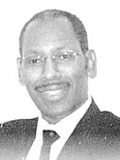
More Mental Health Articles
Do You Grind Your Teeth?
Bruxism, or teeth grinding, is a condition affecting adults as well as children. In the United States, an estimated 30-40 million people suffer from bruxism.
Some people grind their teeth only during sleep; this condition is called nocturnal bruxism or sleep-related bruxism. Others grind their teeth during the daytime as well, most often during situations that make them feel tense or anxious.
Overall, 5-10% of Americans have bruxism that is severe enough to fracture dental fillings or cause other types of tooth damage. Severe bruxism has also been blamed for some cases of temporomandibular joint dysfunction, mysterious morning headaches and unexplained facial pain.
Bruxism can have a variety of psychological and physical causes. In many cases, it has been linked to stress, but it can also simply be the bodys reaction to poor alignment or occlusion of the teeth (the way the teeth come together). Bruxism can sometimes occur as a complication of severe brain injury, or as a symptom of certain rare neuromuscular diseases involving the face.
Bruxism can also be an uncommon side effect of some psychiatric medications, including antidepressant medications known as selective serotonin reuptake inhibitors (SSRIs).
Your physician will ask about your current life stresses, your general dental health and your daily medications. He or she will also want to know whether you routinely drink beverages containing alcohol or caffeine, because both of these chemicals seem to increase the tendency to brux.
Your physician will perform a physical examination with special attention to your mouth and jaw. During this exam, your doctor will check for tenderness in your jaw muscles, as well as for any obvious dental abnormalities, such as broken teeth, missing teeth or poor tooth alignment.
If your physician suspects that you have bruxism that is related to dental problems, he or she may refer you to a dentist for further assessment. In addition to checking your bite, the dentist will examine your teeth and gums for damage caused by bruxism. The dentist will also take a series of mouth x-rays.
Of all children who brux between the ages of 3-10, more than half will stop spontaneously by age 13.
In teenagers and adults, the duration of bruxism depends on its cause. For example, bruxism can last for many years if it is related to a stressful life situation that doesnt resolve. However, if bruxism is being caused by a dental problem, it should stop when the teeth are repaired and realigned often within a few dental visits.
If your bruxism is related
to stress, you may be able to prevent the problem by seeking professional counseling or by using strategies to help you learn to relax. Also, try cutting down on your daily intake of alcohol and caffeine, if you routinely drink beverages that contain these chemicals.
Other Articles You May Find of Interest...
- The Challenges of Being an LGBTQ+ Parent
- Embracing Healing: Navigating the Emotional and Physical Journey of Mastectomy Recovery
- Understanding the Role of Support Groups in Personal Development
- Ways To Check On a ‘Mama’ In Your Life
- How to get rid of stress
- The Impact Of Mental Illness
- Healthy Mind In a Healthy Body

















